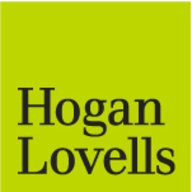European Single Access Point: Improving Compliance
ESAP, a European initiative, aims to centralize corporate data, enhancing transparency in EU capital markets. It'll store mandatory regulatory info and voluntary filings, easing cross-border investment. Compliance rolls out over four years, with a 2027 launch expected.

Compliance Key in ESAP's Goal to Improve EU Capital Market Transparency
The European Single Access Point (ESAP) aims to create a centralized data space to grant investors easier access to corporate information. As part of the European Commission's plan to strengthen EU capital markets, ESAP's goal is to increase transparency and improve the exchange of information for all market participants. The platform will store information already required under existing European directives and regulations, as well as voluntary filings by EU companies. This will make it easier for investors to identify suitable firms and products on a cross-border basis, potentially giving greater visibility to entities seeking funding. ESAP compliance will be gradually phased in over four years, with the platform expected to be available from summer 2027.
ESAP: Transforming Compliance and Empowering EU Financial Institutions
The European Single Access Point (ESAP) is poised to revolutionize compliance in the European Union's financial sector. By creating a centralized data space, ESAP aims to enhance transparency, accessibility, and cross-border investments for all financial institutions operating within the EU.
- Transparency: ESAP's implementation holds great potential for transforming the landscape of compliance. The consolidation of corporate information on the platform will vastly improve transparency and provide investors with easier access to crucial data. This increased transparency can lead to a surge in investment in EU companies, particularly smaller enterprises that have been constrained to smaller national capital markets until now.
- Elimination of Barriers: Moreover, ESAP will break down barriers to cross-border investments within the EU. By streamlining the exchange of information, the platform will foster greater visibility for entities seeking funding and enable investors to identify suitable firms and products on a cross-border basis. This harmonization of data will create a more integrated EU capital market, facilitating smoother investments across borders and fostering economic growth.
- Advantgaes and Disadvantages: However, the centralization of information on ESAP also raises concerns for EU companies. While the platform offers advantages, such as improved accessibility and accountability, it may increase litigation risks. With all current and historical data stored in one location, claimants may find it easier to locate evidence, potentially leading to an uptick in legal claims against companies. This could result in additional costs for legal defenses and higher insurance premiums, challenging the financial stability of these entities.
- Revision: To adapt to ESAP and ensure compliance, financial institutions need to proactively address the forthcoming changes. They should review their existing data management and reporting systems, aligning them with ESAP's requirements. Additionally, companies must revise their policies and procedures to ensure compatibility with the new framework. By staying ahead of the regulatory curve, financial institutions can navigate the implementation of ESAP smoothly and minimize disruptions to their operations.
The phased-in timeline for ESAP compliance over four years, with an expected availability in summer 2027, provides financial institutions with ample time to prepare. They should leverage this period to familiarize themselves with the evolving ESAP standards, seek guidance from regulatory authorities, and ensure that their data submission processes align with the platform's requirements.
As ESAP becomes fully operational, it is likely to spur the development of a comprehensive data quality framework. This framework would ensure the reliability and accuracy of information stored on the platform. Clear guidelines for data submitters and collection bodies will further strengthen the integrity of the system, fostering trust among market participants.
Read More
Reduce your
compliance risks


